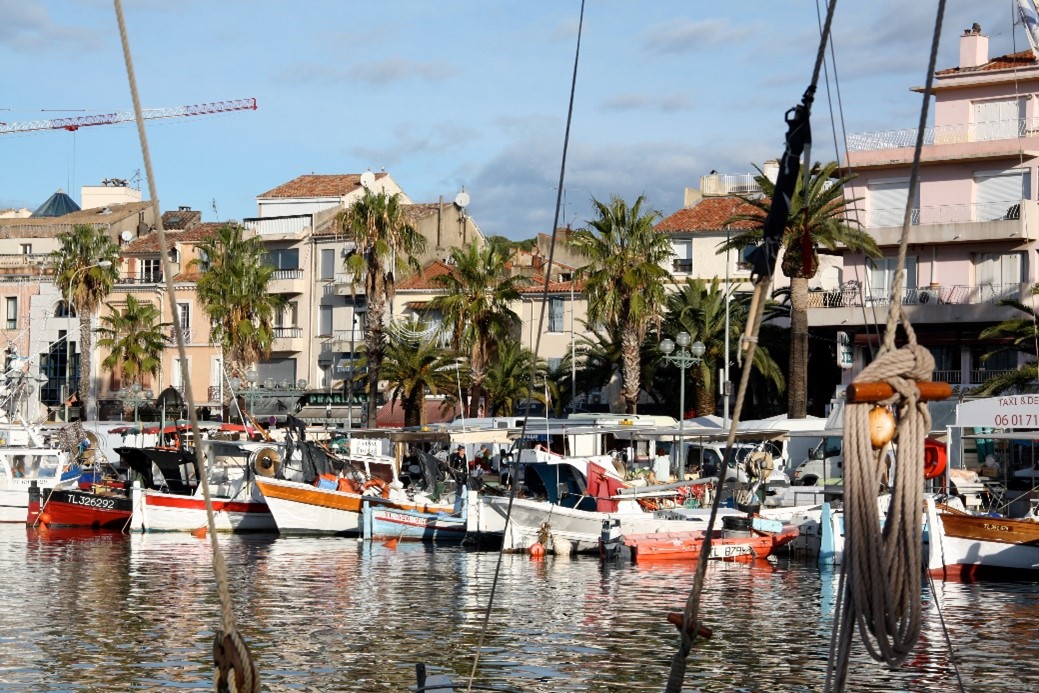Big changes often start with a little step, and it is these small steps that often produce a considerable and decisive impact both at a local and global level. And when the challenge is to convince people to believe in a more responsible and sustainable way of both producing and consuming resources – be they fuel, energy, or food – winning people’s hearts one by one seems to be the best way.
Sharing and having already put into practice this approach, FPT Industrial has teamed up with Slow Food to support two local communities, in Italy and in France, in order to facilitate and accelerate their journey towards change. Founded in 1989, Slow Food is a global grassroots organization, established to prevent the disappearance of local food cultures and traditions, counteract the rise of the so-called ‘fast lifestyle’ and to combat people’s dwindling interest in the food they eat, where it comes from, and how our food choices affect the world around us. Since its beginnings, Slow Food has grown into a global movement involving millions of people in over 160 countries, working to ensure everyone has access to good, clean, and fair food.
FPT Industrial chose to partner with Slow Food in order to strongly reaffirm, at the local level, its long-time commitment to sustainability; a commitment demonstrated not only through the production of low-impact, high-performance engines, but also with sustainability projects and concrete actions, such as “Fishing for Plastic”, the initiative enabled three tons of plastic to be retrieved from the seas of San Benedetto del Tronto (Italy), and Urban Forestry, a reforestation project involving the planting of 1,000 trees of 32 native species in the Basse di Stura area to the north of Turin (Italy).
The two communities jointly selected by FPT Industrial and Slow Food are the cooperatives Valdibella and NoE in Sicily and La Seyne-Sur-Mer Prud’homie in the Var department in France. The Valdibella cooperative, in the Italian region of Sicily, operates in the production and transformation of biological food. Its 41 members favor the farming of local and ancient varieties and use sustainable agriculture approaches through conservation cultivation methods in order to maintain natural soil fertility. The NoE (No Emargination) cooperative was founded in 1993 and deals with the social inclusion of disabled people. In 1998 the city of Partinico entrusted it with a plot of confiscated land from the mafia. This land was converted into biological agriculture fields, cultivated with olive trees, vegetables, and arable crops.
FPT Industrial and Slow Food will support the two cooperatives in their projects focused on the creation of a “food forest” reproducing the natural eco-system and capable of diversifying food production while preserving the landscape, and to create a free and autonomous supply chain model, to deliver high-quality biological food to everybody at an affordable price.
The La Seyne-Sur-Mer Prud’homie is one of the 33 prud’homies (fishing collectives) present along France’s Mediterranean coast. These collective organizations, tied to specific geographic areas, evolved out of medieval trade guilds and have been used to manage French marine resources for over ten centuries.
The prud’homies play an essential control and conservation role in marine zones, preserving a historic cultural model and participating in everyday port life. About 20 fishermen, some of them working with FPT Industrial powered boats, are committed to sustainable fishing and to passing these virtuous traditions on to younger generations through the strengthening of the local supply chain.

Through the FPT Industrial and Slow Food support, the community will be able to upgrade its infrastructure, with special attention for those devoted to maintaining the cold chain and to improving fish management, as well as to create additional local jobs.
These two projects are an important opportunity for FPT Industrial to promote the brand and the product portfolio, including the related sustainability initiatives.
Daniela Ropolo, Head of Sustainable Development Initiatives at CNH Industrial, declared:
“Having led some of the most prestigious World Sustainability Indices over the last decade- Also means demonstrating, day by day, true interest and concrete support for all those initiatives which can produce a tangible change in people’s and communities’ lives, be they big or small. In exactly the same way as the $2 million global Solidarity Fund initiative CNH Industrial has set up to support the fight against Covid-19 in communities where businesses have been affected by the virus.”
Egle Panzella, Brand Equity, Sustainability, and Heritage manager of FPT Industrial, stated:
“The strong proximity of these two communities’ fields of action with two of our main businesses, marine and agricultural engines. Acted like a starter and ignited a real enthusiasm among all involved in this project. To have the opportunity to contribute to making a difference, helping people committed to a healthier, more just, and more sustainable way of living and producing is part of FPT Industrial’s DNA and mission. And doing this in partnership with Slow Food is a real privilege.”
“Slow Food believes food is tied to many other aspects of life, including culture, politics, agriculture, and the environment. Through our food choices, we can collectively influence how food is cultivated, produced, and distributed, and change the world as a result. These projects had already started, but they needed ‘to accelerate’ in order to show that the right way is the right choice. That’s why we, in cooperation and collaboration with our partners and supporters, decided to finance them. Because the change has to happen: and happen now.”
commented Francesco Sottile of Slow Food.



 Copyright 2017-2025 All rights reserved.
Copyright 2017-2025 All rights reserved.